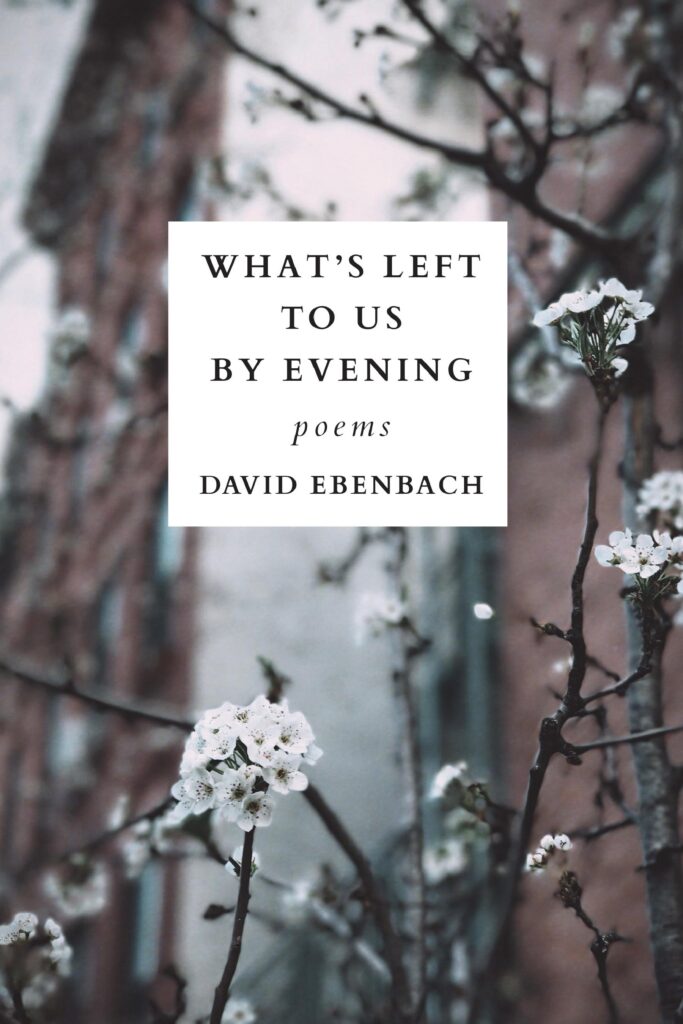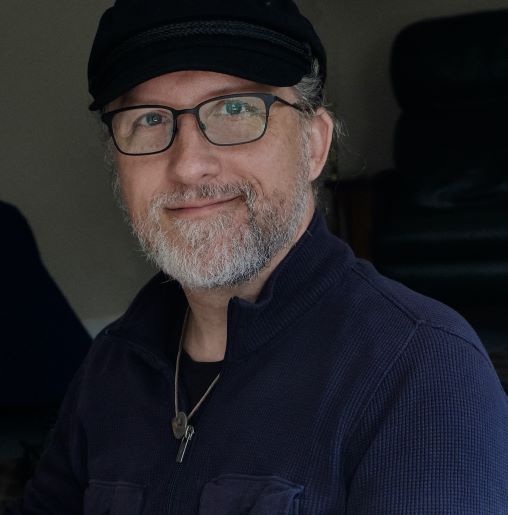Editor’s Note: This exchange is part of a series of brief interviews with emerging writers of recent or forthcoming books. If you enjoyed it, please visit other interviews in the I’ve Got Questions feature.
- What’s the title of your book? Fiction? Nonfiction? Poetry? Who is the publisher and what’s the publication date?
What’s Left to Us by Evening is my third collection of poetry, published by the wonderful Orison Books and in print as of October 6, 2022.
- In a couple of sentences, what’s the book about?
The publisher’s description says it best:
“How does one live in a world that is both beautiful and broken—a world of cherry blossoms and gun violence, fellowship and political enmity, plague and rebirth? What’s Left to Us by Evening, David Ebenbach’s unsparing and timely new poetry collection, examines the obligation—and privilege—of carrying it all.”
- What’s the book’s genre (for fiction and nonfiction) or primary style (for poetry)?
The poetry is lyric and ranges from the anxious and melancholy to the awed and celebratory. I think you could say the same thing about the world we live in.
- What’s the nicest thing anyone has said about the book so far?
Aside from my family, you mean? Well, the poet Matthew Olzmann said, “the world in these pages is one made of equal parts grit and tenderness. It’s a world of work, violence, politics, and little apocalypses, but also singing, birdwatching, prayer, and flowers bursting into bloom.” I love that.
- What book or books is yours comparable to or a cross between? [Is your book like Moby Dick or maybe it’s more like Frankenstein meets Peter Pan?]
I think you might be able to produce something like my book if you put Ross Gay’s Catalog of Unabashed Gratitude and Jane Kenyon’s Otherwise into a pot over a low heat and stirred vigorously.
- Why this book? Why now?
This book came out of my feeling—and I think I’m not alone in this—that the world is both horrifying and breathtakingly beautiful. Anger and violence sit right alongside awe-inspiring natural wonders and community. Probably it’s always been this way, but the last few years have, for me and for others I know, increased the tension between these truths. I think the only honest way to approach the world we’ve got is by acknowledging the full range of what it offers—the threats and the gifts.
- Other than writing this book, what’s the best job you’ve ever had?
I really love teaching, and not only when I’m directly teaching students, which I do at Georgetown University. At Georgetown’s Center for New Designs in Learning and Scholarship (CNDLS) I also get to work with graduate students and faculty to support their ongoing development as teachers. I am delighted to help passionate, dedicated teachers become more and more the people they want to be in the classroom.
- What do you want readers to take away from the book?
I want readers to feel sobered by the challenges we’re facing as a society and as a species—and also inspired to hope, and work, for something better.
- What food and/or music do you associate with the book?
Funny you should ask—I recently created a playlist based on What’s Left to Us by Evening—think Air, Matisyahu, Susuma Yokota and Rothko, and George Winston—and the Largehearted Boy blog has posted it. Check it out!
- What book(s) are you reading currently?
I tend to be buried in a few books at any one time. As for poetry collections, I’m reading two really inspiring ones right now: Such Color by former US Poet Laureate Tracy K. Smith, as well as Melanie McCabe’s third book of poetry, Night Divers. And I’m also reading Clarice Lispector’s astounding first novel, Near to the Wild Heart.
Learn more about David at his website.
Follow him on Facebook, Instagram, or Twitter.
Buy the book from the publisher (Orison Books), Amazon, or Bookshop.org.


